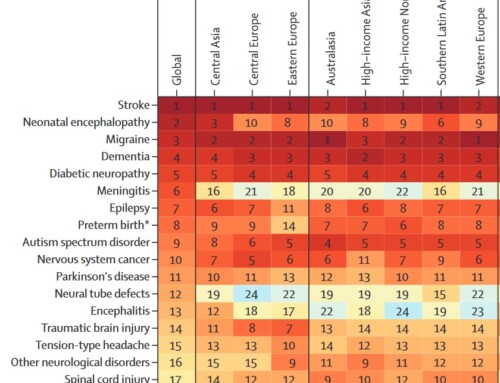How hip hop and the topic of organ donation fit together?
The Hamburg rapper Bo Flower demonstrated this at the organ donation dialogue organized by the Schleswig-Holstein Ministry of Health and the TK on April 27, 2009 in the Kunsthalle in Kiel. With his band he sang the title song of the music project of the same name “From Person to Person”.
“Hip hop offers the opportunity to put lyrics to even violent topics,” explains the musician. And he's right. Because with what other style of music would a word like “organ donation card” be easily incorporated into the lyrics?
And our feelings when we hear the word “organ donation card?” The reactions range from "I don't think it's bad at all, I just haven't had the opportunity to get such an ID card yet" to the fear of donating organs and not being dead yet.
By donating an organ you can save the lives of other seriously ill people after your own death. The willingness to donate organs is a very personal decision. For many, dealing with organ donation means a first confrontation with their own death. Of course that's scary.
Added to this is uncertainty, ignorance, especially when it comes to medical issues, and numerous false information. Anyone thinking about becoming an organ donor should only make a well-informed and well-informed decision.
An organ donor card gives you the opportunity to document your decision for or against organ donation - regardless of what you decide. In any case, it makes sense to fill out an organ donor card.
You can use your ID card to agree to or object to the removal of organs. This way you can help your relatives and make this decision for them. Unless you consciously decide to transfer the decision to someone else. You also have the option to do this on your organ donor card.
Your data will not be recorded and if you change your decision, you simply need to destroy the organ donor card. You can then record your current wishes on a new ID card. You should then carry it with you with your personal papers.
Three people die every day in Germany because they do not receive a donor organ on time.
From human to human
Giving life – Celebrities support organ donation. Although 80 percent of people in Germany have a positive attitude towards organ donation, only one in seven carries an organ donor card. In the first half of 2008, the number of organ donors fell for the first time in years.
The Ministry of Health of Schleswig-Holstein and the TK launched their organ donation campaign “From Person to Person” on April 27, 2009.
The event was actively organized by Dr. Gitta Traunicht, Minister for Social Affairs, Health, Family, Youth and Seniors of the State of Schleswig-Holstein, Helmuth Doose, deputy chairman of the Techniker Krankenkasse (TK), those affected, the musicians Nele Kohrs and Bo Flower, who support organ donation with a music project make. Those affected, experts from various disciplines and young artists reported on their experiences and the latest developments. The discussion partners were Health Minister Dr. Gitta Traunicht, TK board member Helmuth Doose, Prof. Dr. Dieter Bröring (UKSH Kiel), Priv.-Doz. Dr. Conny Bürk (UKSH Lübeck), Priv.-Doz. Dr. Nils Frühauf (DSO), Prof. Dr. Hartmut Rosenau (Director of the Institute for Systematic Theology at the CAU Kiel, spokesman for the Center for Ethics), the artists Nele and Bo Flower and those affected. The moderator was the ARD television presenter Dennis Wilms.
86 percent of people in Germany do not have an organ donor card. If someone has not expressed their decision for or against organ donation during their lifetime, their relatives must decide whether they agree to organ removal. This is a difficult situation for everyone involved, the relatives and the treating doctors, because many families have never discussed the topic. In a Forsa survey on organ donation commissioned by the Techniker Krankenkasse (TK), one in three of those surveyed said that they had never dealt with the topic and did not feel sufficiently informed.
The data shows: the better informed people are, the more positive they are about organ donation,” explains Prof. Dr. Norbert Klusen, Chairman of the Board of Directors of TK, led the telephone campaign. “Many people have concerns because they don’t know how organ donation works. In addition, some believe that they are not eligible for organ donation for health or age reasons. Here we want to educate, inform and thus ensure more transparency.”
12,000 people in Germany are currently on the waiting list for a donor organ. Every day three of them die because they do not receive the life-saving organ in time. As the Forsa survey shows, the respondents' answers as to why they do not fill out an organ donor card are usually due to a lack of information, misunderstandings and prejudices.
The event therefore explains the seven most common misconceptions surrounding organ donation:
1. “I am too young / I am too old for organ donation.” There is no minimum or maximum age for organ donation. Since there are patients of all ages waiting for a life-saving donor organ, there is no upper or lower age limit.
2. “For religious or ethical reasons, I refuse organ donation.” The Catholic and Protestant Churches as well as the Central Council of Muslims support organ donation as an act of charity and solidarity with the sick and disabled. However, since the Jewish interpretation of the law does not recognize brain death as the end of life, organ removal is only permitted when the heart no longer beats. For example, it is possible to transfer the cornea after death.
3. “I am afraid of being declared dead prematurely in the clinic when organs are urgently needed.” The prerequisite for organ donation is the patient’s complete and irreversible brain death. It must be diagnosed independently by two doctors at least twelve hours apart.
4. "I haven't had time to register as an organ donor yet." The organ donor card is a simple paper document that you should always carry with you. The information contained is not registered anywhere. Many health insurance companies send out the ID cards free of charge. The ID card is available for free download on many websites.
5. “For health reasons, I cannot be an organ donor.” Organ donation is not an option if the deceased was acutely ill with cancer or had serious previous illnesses such as AIDS or tuberculosis. After brain death, doctors check whether organ donation is medically possible when organ donation is actually due. A health check during your lifetime is therefore not necessary.
6. “If I carry an organ donation card with me, I am an organ donor.” On the organ donation card you can document your personal wishes as to what should happen in the event of death. You can also state that you object to organ donation, limit consent to certain organs or exclude certain organs. You can also transfer the decision about organ donation to another person named on the ID card.
7. “I am afraid that my relatives will no longer recognize me if my organs are removed during a transplant.” The surgical procedure for organ removal is carried out with the same surgical care as any other operation. After explantation, the body is transferred to burial in a dignified condition.
Source: TK
http://www.tk-online.de/tk/medizin-und-gesundheit/medizinen/organspende/18570
http://www.organspende-info.de/extra/bestellservice/Organspendekarten/
We have put together some impressions for you here.

































Leave a comment